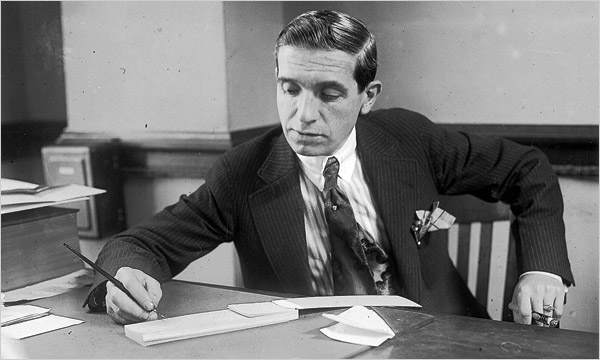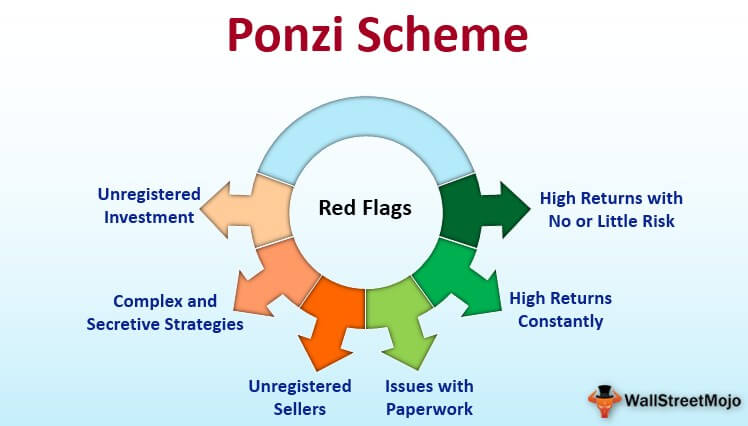A ponzi scheme is thought about a deceptive investment program. It includes utilizing payments gathered from brand-new investors to pay off the earlier investors. The organizers of Ponzi schemes normally assure to invest the cash they collect to produce supernormal earnings with little to no risk. Nevertheless https://directory.libsyn.com/shows/view/id/tylertysdal, in the genuine sense, the scammers don't really prepare to invest the money.
Once the brand-new entrants invest, the cash is gathered and utilized to pay the initial financiers as "returns."Nevertheless, a Ponzi scheme is not the like a pyramid scheme. With a Ponzi scheme https://www.facebook.com/tylertysdalbusinessbroker/, investors are made to think that they are earning returns from their investments. On the other hand, individuals in a pyramid scheme know that the only way they can make profits is by hiring more individuals to the scheme.
Warning of Ponzi Schemes, The majority of Ponzi plans come with some typical attributes such as:1. Pledge of high returns with minimal risk, In the real world, every financial investment one makes brings with it some degree of danger. In reality, investments that use high returns generally bring more danger. So, if someone uses a financial investment with high returns and few dangers, it is most likely to be a too-good-to-be-true deal.
Ponzi Scheme Pyramid Scheme Difference
2. Excessively constant returns, Investments experience variations all the time. For example, if one purchases the shares of a given business, there are times when the share rate will increase, and other times it will reduce. That stated, financiers should constantly be skeptical of investments that generate high returns consistently regardless of the changing market conditions.
Unregistered financial investments, Prior to hurrying to invest in a scheme, it is very important to confirm whether the investment firm is signed up with U.S. Securities and Exchange Commission (SEC)Securities and Exchange Commission (SEC) or state regulators. If it's signed up, then a financier can access details concerning the company to identify whether it's legitimate.
Unlicensed sellers, According to federal and state law, one ought to have a specific license or be signed up with a regulating body. A lot of Ponzi schemes handle unlicensed people and business. 5. Deceptive, sophisticated methods, One should prevent financial investments that include procedures that are too complex to understand. History of the Ponzi Scheme, The scheme got its name from one Charles Ponzi, a scammer who fooled thousands of investors in 1919.
Ponzi Scheme 2008
Back then, the postal service offered worldwide reply coupons, which made it possible for a sender to pre-purchase postage and integrate it in their correspondence. The recipient would then exchange the coupon for a priority airmail postage stamp at their home post workplace. Due to the variations in postage rates, it wasn't unusual to find that stamps were costlier in one nation than another.
He exchanged the discount coupons for stamps, which were more costly than what the coupon was initially purchased for. The stamps were then sold at a higher rate to earn a profit. This type of trade is called arbitrage, and it's not unlawful. However, eventually, Ponzi became greedy.
Given his success in the postage stamp scheme, no one questioned his intents. Regrettably, Ponzi never ever truly invested the cash, he just raked it back into the scheme by paying off a few of the investors. The scheme went on up until 1920 when the Securities Exchange Company was examined. How to Secure Yourself from Ponzi Plans, In the same method that an investor researches a company whose stock he's about to acquire, a person needs to investigate anybody who assists him handle his finances.
Ponzi Scheme Amway

Likewise, prior to purchasing any scheme, one need to request the company's financial records to confirm whether they are legit. Key Takeaways, A Ponzi scheme is just a prohibited financial investment. Called after Charles Ponzi, who was a fraudster in the 1920s, the scheme guarantees constant and high returns, yet apparently with very little threat.
This type of scams is called after its creator, Charles Ponzi of Boston, Massachusetts. In the early 1900s, Ponzi launched a scheme that guaranteed financiers a 50 percent return on their investment in postal discount coupons. Although he had the ability to pay his initial backers, the scheme dissolved when he was not able to pay later investors.

What Is a Ponzi Scheme? A Ponzi scheme is a deceitful investing rip-off appealing high rates of return with little threat to financiers. A Ponzi scheme is a deceptive investing scam which creates returns for earlier financiers with money taken from later investors. This is comparable to a pyramid scheme in that both are based on utilizing new financiers' funds to pay the earlier backers.
Ponzi Scheme Characteristics
When this circulation runs out, the scheme breaks down. Origins of the Ponzi Scheme The term "Ponzi Scheme" was created after a trickster called Charles Ponzi in 1920. However, the very first tape-recorded instances of this sort of investment scam can be traced back to the mid-to-late 1800s, and were orchestrated by Adele Spitzeder in Germany and Sarah Howe in the United States.
Charles Ponzi's initial scheme in 1919 was focused on the United States Postal Service. The postal service, at that time, had developed international reply coupons that permitted a sender to pre-purchase postage and include it in their correspondence. The receiver would take the coupon to a local post workplace and exchange it for the priority airmail postage stamps needed to send a reply.
The scheme lasted until August of 1920 when The Boston Post started investigating the Securities Exchange Company. As a result of the newspaper's investigation, Ponzi was apprehended by federal authorities on August 12, 1920, and charged with a number of counts of mail fraud. Ponzi Scheme Warning The principle of the Ponzi scheme did not end in 1920.
Ponzi Scheme Victims Tax Relief Act
Ty Tysdal News on on The Web
Type of financial scams 1920 picture of Charles Ponzi, the namesake of the scheme, while still working as a business owner in his office in Boston A Ponzi scheme (, Italian:) is a kind of scams that entices investors and pays revenues to earlier financiers with funds from more current financiers.